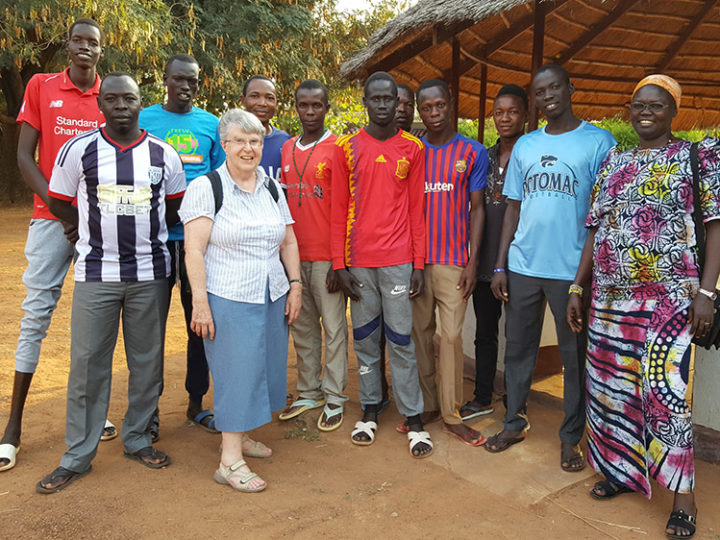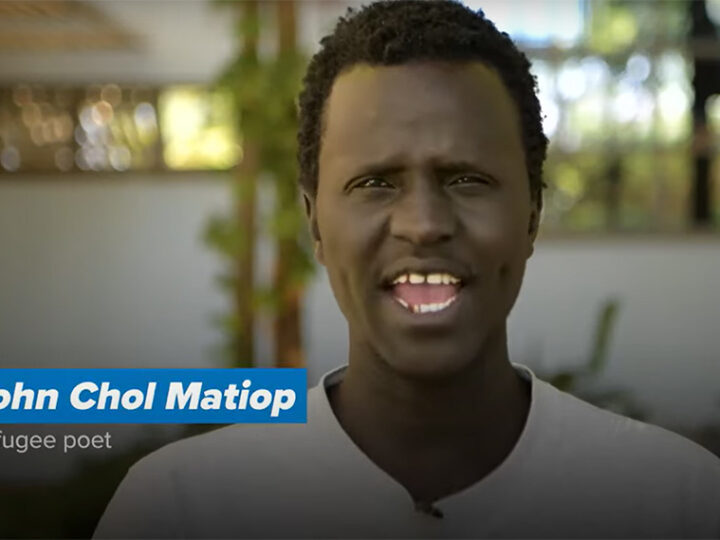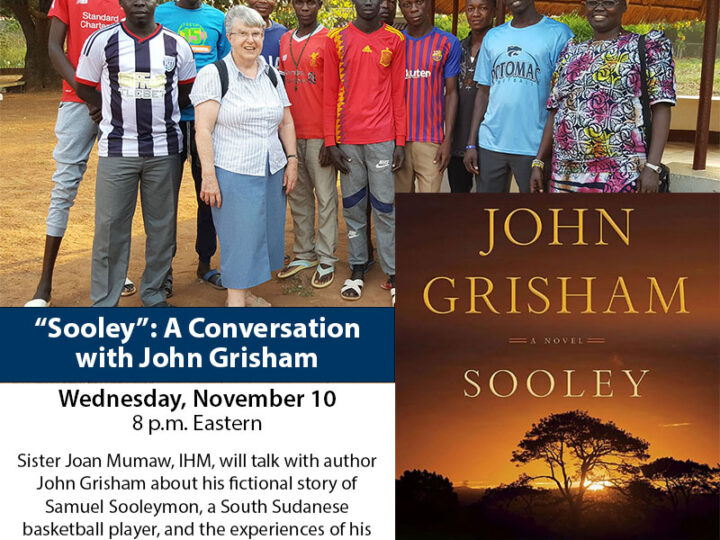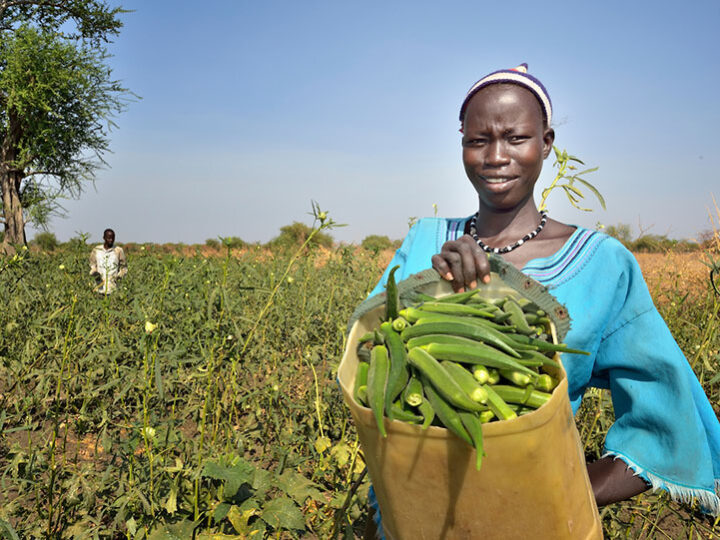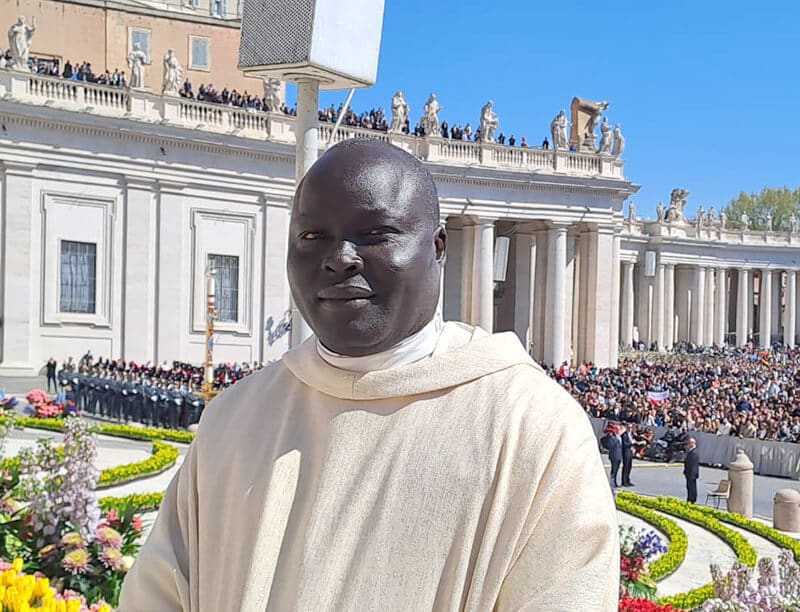
Father Joseph Lomoli, a Catholic priest from the Archdiocese of Juba, is currently doing a licentiate in Leadership and Management at the Gregorian University in Rome.
This is his experience with Solidarity with South Sudan: in his words we can recognize the impact of Solidarity on the South Sudanese, and the application of the Laudato Sì Goals in all the communities, as essential values to promote in the projects all around the country.
I have been serving in the priestly ministry since 2007 in various parishes in my country South Sudan. My ministry has allowed me to interact with different levels of people and constantly travel outside the country for some courses and workshops.
South Sudan as a new nation has just come out of two decades of devastating civil war. Ours is a country in the making, and this period of the revitalized Peace Agreement requires rehabilitation and development in social, human, environmental, and spiritual fields.
For the last eight years, I have been a parish priest in one of the oldest missions in the Catholic Archdiocese of Juba. This responsibility requires making important decisions on how the church can engage more fully in the development and rehabilitation process the country is going through.
How did you come to know about Solidarity?
Being one of the beneficiaries of Solidarity with South Sudan, I can testify that I came to know this organization from its inception in 2008 when South Sudan was recovering from the trauma of the civil war. Solidarity came in to offer trauma healing and other pastoral activities to all the church personnel in Juba Archdiocese as a means of building peace.
I came to know more about Solidarity through the values of Solidarity created in South Sudanese society. South Sudan has about 64 tribes who have the challenge of living together as one people due to the bitter past experiences of war. However, through capacity building programs offered by Solidarity in the fields of education, health care, agriculture, and pastoral ministry, which are spread over 10 states of South Sudan. This effort through the beneficiaries has educated the South Sudanese to know the value of unity and avoid revenge.
Furthermore, I came to know about Solidarity with South Sudan through word of mouth. I had the privilege of meeting some South Sudanese nationals, former graduates of Solidarity Teacher Training College in Yambio and the Catholic Health Training Institute in Wau, who are doing a praiseworthy service in the country.
In what way did you cooperate with Solidarity?
I cooperate with Solidarity in building a culture of peace and reconciliation and sustainable agriculture by availing the members of my parish community of any training organized by the Solidarity family in the four areas of integral human development: education, health care, sustainable agriculture, pastoral care, and youth programs. The second way is by creating a platform for people to share what they learned from the training with the larger community that does not have the opportunity to attain the training or workshop. As a parish priest, I used to incorporate the teachings of Solidarity on health care, sustainable agriculture, reconciliation, and peace building in my homilies on Sundays. Finally, planting trees around the parish land which I see as trying to live the values of the Gospel preached by Solidarity on environmental management.
What is the impact of Solidarity on South Sudanese?
Solidarity with South Sudan has impacted the lives of most South Sudanese in various ways socially, economically, and culturally. Socially, Solidarity through educational and health training has helped some warring communities to embrace the culture of peace. Through teacher training programs, Solidarity with South Sudan has improved the quality of education for children in most of the areas of South Sudan that were previously affected by the 2013 and 2016 conflicts. Economically, Solidarity with South Sudan through agricultural training has improved the production or food security in most of the arable areas in the country. Communities are able to grow their own food and reduce their dependence on food aid.
Application of Laudato Sì Goal and SDG in the Solidarity communities:
The four major projects Solidarity is carrying out in South Sudan are in line with both the Laudato Sì Action Platform and SDGs (Sustainable Development Goals) which were established in 2015 by the United Nations General Assembly.
Promotion of the Laudato Sì Goals:
- Response to the Cry of the Earth, Response to the Cry of the Poor and Ecological Economics
Solidarity is offering sustainable agricultural training to the local farmers in various communities across South Sudan to improve food security and alleviate poverty. The training has enhanced the skills of farmers in environmental management. They are now embarking on planting trees as windbreakers and they have promulgated laws that stop cutting of trees and burning of forests. People are now practicing the green culture in their families by planting vegetation and flowers around their homes to avoid soil erosion. - Ecological education and Adoption of Sustainable lifestyles
In the field of education, Solidarity has done an exceedingly great job. It not only trains teachers who are able to provide quality education to the children across South Sudan, but also helps communities to understand our interdependence on the environment and the effect of throw-away culture on the environment. As result, communities have banned the use of plastic bottles. - Ecological Spirituality and Community Engagement and Participatory Action
Solidarity through the peace education curriculum that is taught in various schools across South Sudan has helped to promote the spirit of reconciliation, conflict resolution, and peace-building among warring communities: a dialogue that encourages coexistence by appreciating the value of unity in diversity.
Many thanks to Fr. Joseph for his witness.



